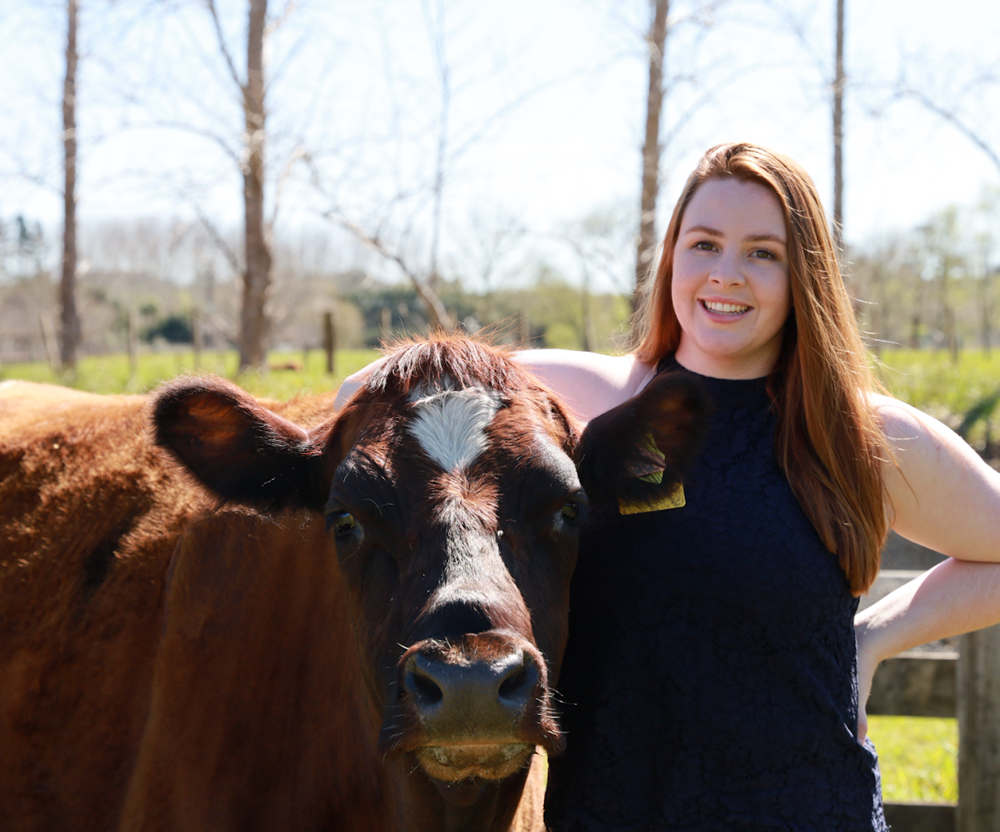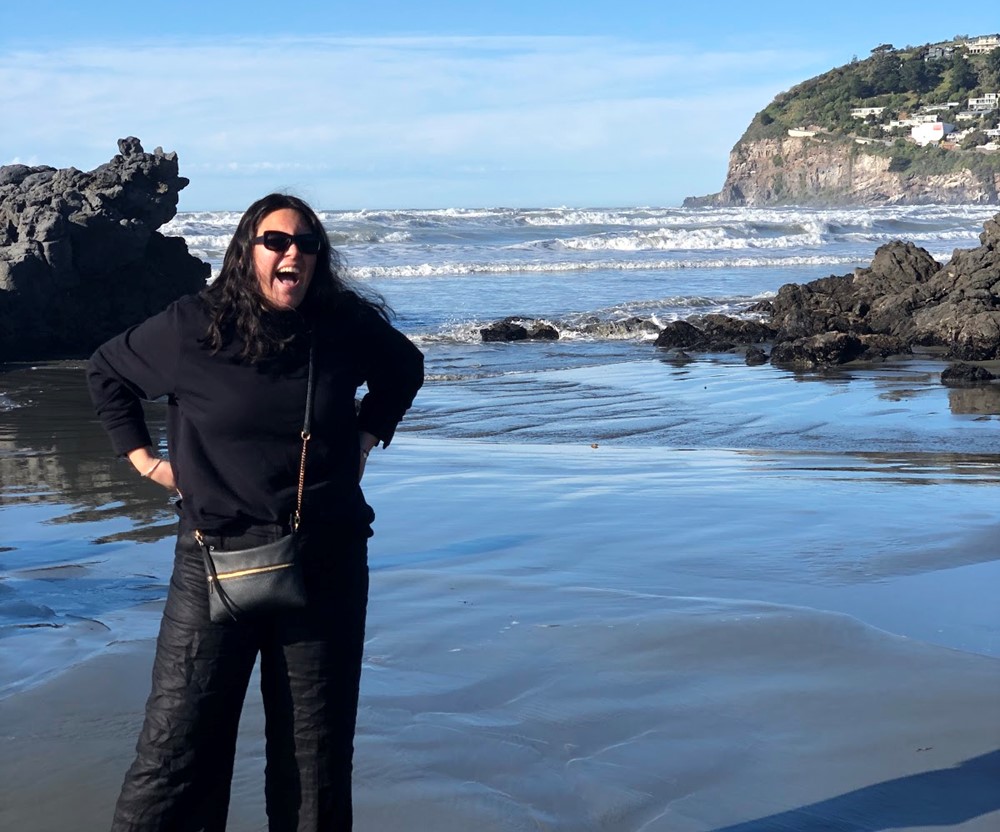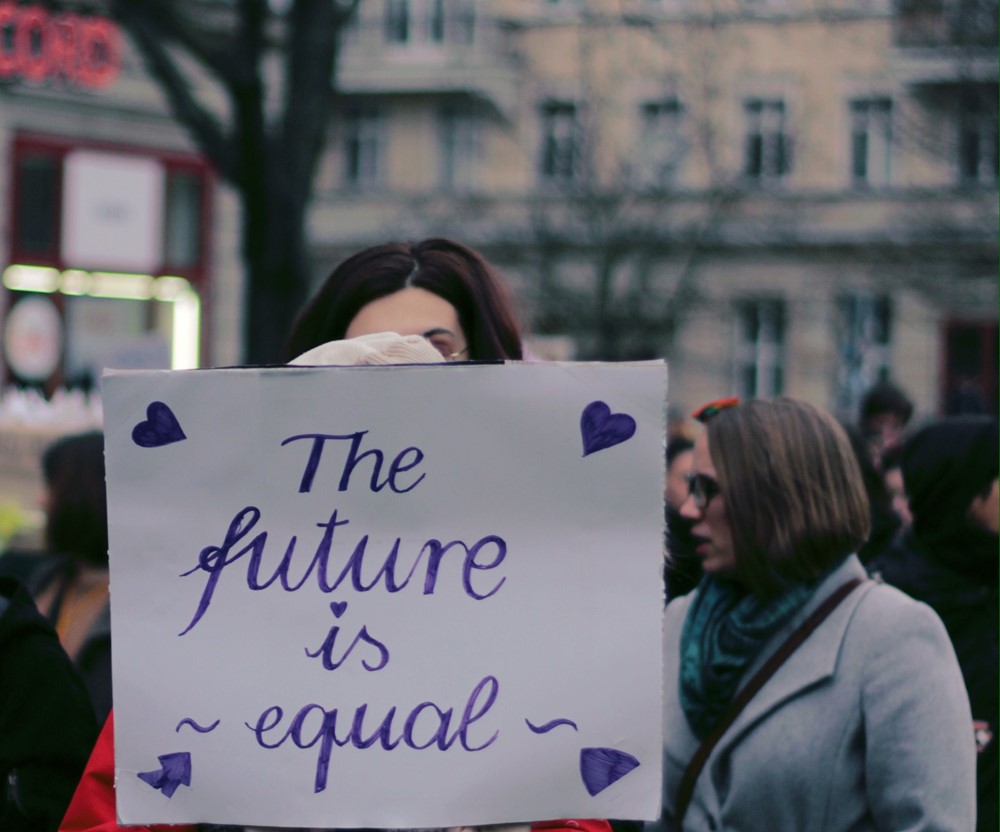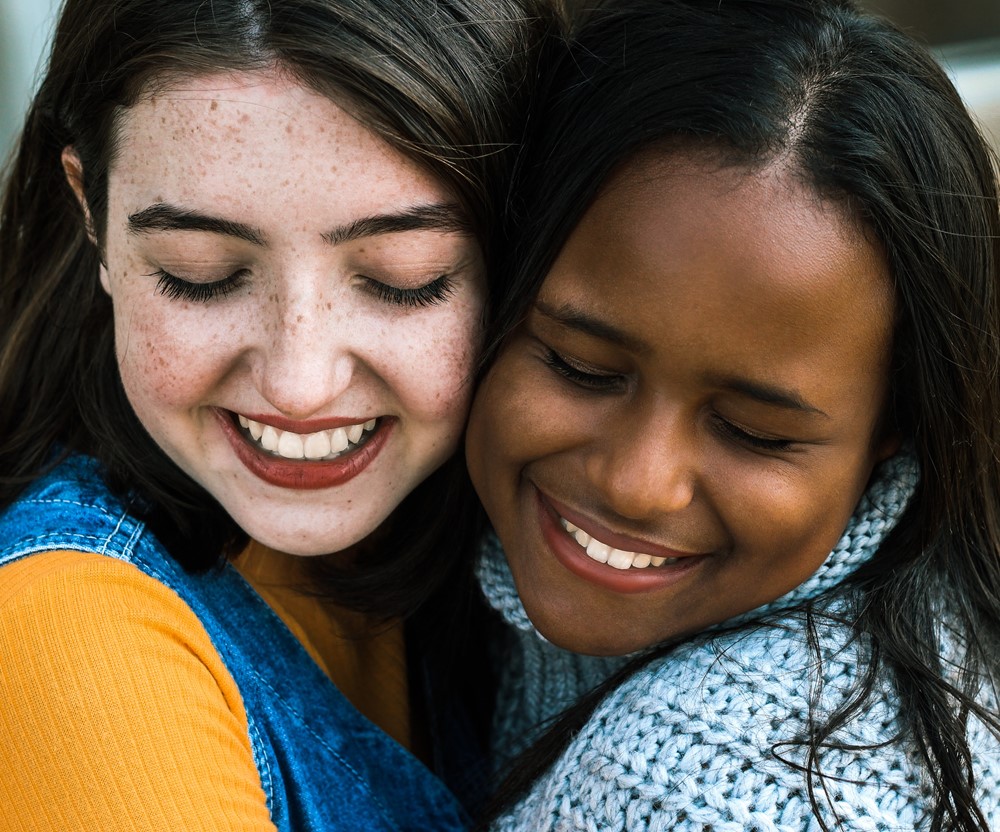
#MightyWomanMonday: Courtney Davies
Forging a path in the Agricultural sector with passion, skill & determination
Categories
- Community
- Hamilton
Courtney Davies is a multi-talented young woman who has represented New Zealand in problem solving, chicken judging, sheep judging, cattle judging and cattle handling. She has also been one of the top three chicken judges in Australasia for the past two years.
Beyond her Agricultural sector achievements, Courtney is a microbiologist and has discovered four new viruses, and got to name them all!
Courtney is an only child, although her mum keeps her humble by letting her know she has an older and younger brother in the family’s stallion and cat respectively. Her favourite type of food to eat is easily dessert - and she loves exploring boutique dessert places in Auckland with her friends.
Is Sunday Roast a thing in your household?
Sometimes! Weekends throughout summer are often sacrificed to A&P Shows across the country, so when we arrive back home it will usually be a fish and chip kind of night. However, when we do a roast, we really commit. My mum makes the most incredible roast chicken with all of the trimmings and a delicious bread sauce (tastes a whole lot nicer than it sounds) so I always look forward to our roast dinners.
You’ve been to South America a couple of times. What’s the most interesting thing you encountered, or saw, there?
In addition to the incredible people and culture, I loved seeing the capybaras when I travelled to Brazil last November - as part of the Youth Ag Summit. They’re the largest rodent and are semi-aquatic, such a neat combo. Funnily enough, I recently rediscovered an old school book from intermediate, where I did a project on the capybara, never thinking I would actually get a chance to see them in their natural habitat!
Any strange phobias?
Hugging! Yes, I know it is very bizarre. I am in awe (and slightly terrified!) of people who casually embrace those around them with a really long hug. I never quite know when to let go, who should go in for the hug first, and when do you draw the line between a hug and a handshake? Call me irrational, but that all sounds pretty scary to me!
You are a multi-talented and busy young woman with a passion for Agriculture - a field in which there is currently a lack of gender diversity.
Did you face any obstacles entering this sphere of work, and why do you think increasing diversity within this area of work is important?
Thank you! I was speaking to a Canadian journalist recently and he reminded me that agriculture is the oldest industry in mankind - we have always needed to eat and will continue to do so. The industry has evolved exponentially, however, some of our agricultural leaders can be backward in regards to being receptive to the different perspectives provided from those of a different age and gender to themselves.
Everyone is your friend until you challenge them and engage in robust, critical discussion.
I have encountered many obstacles and one that sticks out is being repeatedly told that because I am 24, I do not have enough experience to be able to give constructive input into a discussion and am often met with the following sentiment: “Back in my day, this is how we would do XYZ, so why would you come and change it?” Ironically, I hear the aforementioned expressions in Executive meetings focussed on youth engagement in the agricultural sector.
Globally, we waste over one third of all food produced each year and yet we aren’t equipped to be able to feed our growing population by 2050. Increasing diversity in agriculture simply enables us to acknowledge other solutions and appreciate the different experiences of the people around us.
The world is constantly evolving and everyone is living their own piece of the puzzle, so when we all come together, we will be able to address these challenges with future-fit solutions to ensure agriculture continues to thrive and that there is food on our plates for years to come.
You’ve bred prize-winning cows. As someone who attended a couple of calf club days and couldn’t place a podium spot there, I can say this is no mean feat.
What was the inspiration behind this, or steps taken to achieve this?
I just really love cows! To be honest, breeding, raising and showing cattle has been something I’ve just really enjoyed doing. The thrill of establishing a bond with a young animal and being able to exhibit it at a show is incredible. It just so happened that my 10th birthday coincided with a local show, which meant I could take my Ag Day calf along as my present. I’m sure my parents are regretting that decision, as 14 years on I haven’t really slowed down. I’ve now come full circle and run the cattle section of said show.
I’ve been grateful to have kind farmers who have milked my cows for me which means I can continue to remain involved in the industry and create new platforms for people not from the rural sector to get engaged. In addition, I came to the realisation that I am incredibly competitive and there is always just one more red ribbon to win so I need to keep going! I met one of my best friends showing cattle and when she stopped due to the lack of opportunities and bullying going on all around us, I realised that I needed to do something to sustain the young people in the industry and solve some of these toxic challenges. I have found that when you love something, you’re more likely to stay involved because the little things are less likely to put you off, and any barrier just becomes a challenge to overcome.
You're passionate about and have played a role in promoting some of the United Nations Sustainable Development Goals.
Could you tell us a little about how your work has promoted the implementation of one or some of the SDGs?
One of my recent projects has been a collaboration with a colleague in Nigeria, after we first met at the Youth Ag Summit. He runs an agri-tech hub called MyFarmbase for students across Africa and we have been collaborating across the digital education platform that I teach into as an international instructor. My topic is: “Strategic action plans to achieve a sustainable future in agriculture.” This is a bit of a mouthful, but it boils down to introducing these students to what the SDGs are and simple ways they can integrate these into their agricultural start-ups. Since the first lockdown, we have taught over 2,000 youth across many developing African nations. It has been incredibly inspiring to continue to mentor these students as they establish their own agricultural start-ups.
Agriculture is special in that it concerns all of the SDGs from achieving zero hunger and gender equality, through to ensuring sustainable life on land and life below water. Knowing that over 2,000 young people are now aware of the SDGs, and are on the path to implement these, is heartening.
You have won numerous academic and agricultural awards, and hold ambassador or representative roles with several organisations.
How do you find balance, energy and space to juggle all of this in your life?
I believe that if you love something enough, you will make time for it. I don’t treat my involvement as an Ambassador and representative as a “role” so much, but as aspects that are deeply connected to me. Therefore, carrying out these duties feels natural and not something I’m working at, because I really enjoy what I do.
Seeing the change in the landscapes around me - with more young people coming to A&P Shows or helping increase the diversity on a Board - keeps me striving forward. I will admit that towards the end of my Masters, I did feel an overwhelming sense of imposter syndrome and really struggled for a period of time to change the feelings of anxiety and self-doubt into acknowledgement and excitement of my work. Realising that everyone’s path is different creates such an incredible diversity to everything we do, whether it is seemingly big or small.
I have also realised that I thrive on stress, so to add something else into the mix, I chose to go back to university this semester to study econometrics - after taking a few papers throughout my science degree. I really enjoy keeping my brain active and I am finding that connections between governance, economics, science and agriculture are all interlinked.
Lastly, has anyone guided or supported you so far? Can you share who and how they helped you?
There are so many people! I owe a lot to my parents, friends, university supervisors and mentors who have provided me with countless opportunities to explore opportunities. In addition, I have been guided by the people who have told me my age or gender is a barrier to the Boardroom, as they have given me the resilience to keep fighting and not become complacent.
Here are some other stories that you might enjoy reading.




